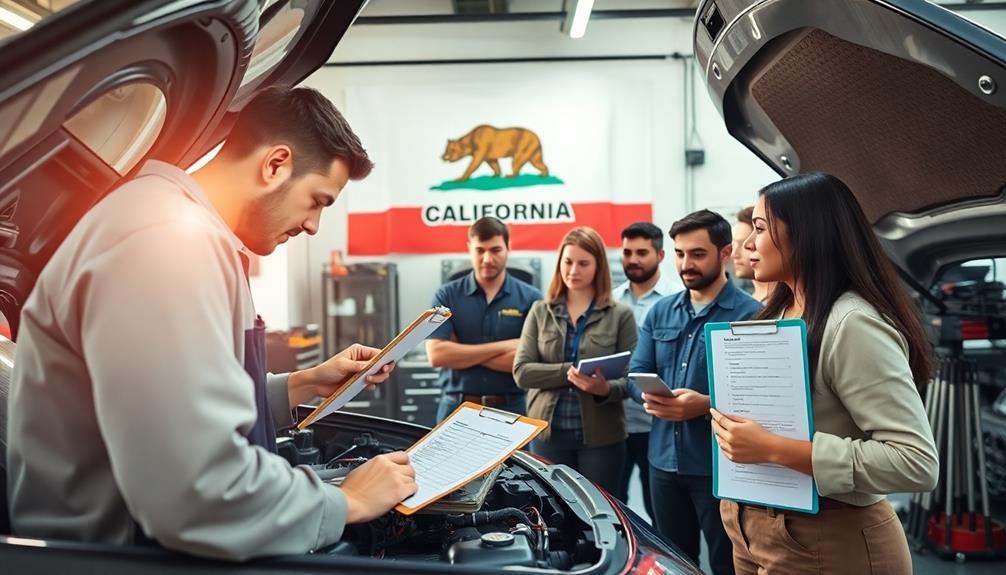Automotive Service Industry Employee Shortage: Critical Skills Gap in Modern Auto Repair
Understand the automotive service industry workforce crisis
The automotive service industry presently experiences a significant shortage of qualified technicians and skilled professionals. This workforce gap affect dealerships, independent repair shops, and specialty service centers countrywide. The shortage stem from multiple factors includes technological advancement, demographic shifts, and change career preferences among younger generations.
Modern vehicles require progressively sophisticated diagnostic and repair skills. Today’s automotive technicians must understand complex computer systems, hybrid powertrains, advanced driver assistance systems, and traditional mechanical components. This technical evolution has created a demand for extremely skilled professionals that exceed current supply.
Most in demand automotive service positions
Automotive technicians and mechanics
Certified automotive technicians represent the virtually critical shortage in the industry. These professionals diagnose vehicle problems, perform repairs, and conduct routine maintenance. The demand for experienced technicians continues to grow as vehicle complexity increases and the total number of register vehicles expand.
Master technicians with advanced certifications command premium wages due to their scarcity. These professionals can diagnose complex electrical issues, repair hybrid systems, and work on luxury vehicles require specialized knowledge.
Diesel technicians
Commercial vehicle maintenance create substantial demand for diesel technicians. Fleet operators, trucking companies, and heavy equipment manufacturers struggle to find qualified professionals capable of maintain and repair diesel engines, transmissions, and hydraulic systems.
The complexity of modern diesel emissions systems require specialized training and certification. Technicians must understand selective catalytic reduction systems, diesel particulate filters, and electronic control modules specific to commercial vehicles.
Collision repair specialists
Auto body repair shops face severe staffing shortages as experienced collision repair technicians retire firmer than new professionals enter the field. Modern collision repair require knowledge of advanced materials include aluminum, carbon fiber, and high strength steel.
Paint technicians with expertise in waterborne paint systems and color matching technology are especially scarce. Insurance companies and collision centers compete intensively for skilled painters capable of achieve factory quality finishes.

Source: autovista24.autovistagroup.com
Specialized technical roles in high demand
Hybrid and electric vehicle technicians
The transition toward electrification create unprecedented demand for technicians train in high voltage systems. Electric vehicle maintenance require specialized safety protocols and diagnostic equipment that traditional technicians may lack.
Battery system diagnostics, charge infrastructure maintenance, and electric motor repair represent emerge specializations with limited qualified professionals. Manufacturers invest intemperately in training programs to develop these critical skills.
Advanced driver assistance system (aAdas)technicians
Modern vehicles incorporate sophisticated safety systems require precise calibration after repairs or windshield replacement. Adas technicians must understand radar, camera, and sensor technologies that enable features like automatic emergency braking and lane departure warning.
The shortage of Adas certify technicians create bottlenecks in collision repair and windshield replacement services. Proper calibration require expensive equipment and extensive training that many shops struggle to provide.
Diagnostic specialists
Complex vehicle systems require technicians capable of advanced troubleshooting use sophisticated diagnostic equipment. These specialists interpret scan tool data, analyze waveforms, and diagnose intermittent electrical problems that challenge less experienced technicians.
Diagnostic specialists oftentimes work in dealer service departments or specialty shops handle difficult repairs that other facilities can not resolve. Their expertise command premium labor rates and steady employment demand.
Service management and support positions
Service advisors
Customer face service advisors bridge the gap between technical staff and vehicle owners. These professionals must understand automotive systems intimately adequate to explain repair recommendations while possess strong communication and sales skills.
Experienced service advisors who can accurately estimate repair costs, manage customer expectations, and coordinate with technicians are progressively difficult to find. The role require both technical knowledge and interpersonal skills that many candidates lack.
Parts specialists
Automotive parts departments need knowledgeable staff capable of identify correct components for diverse vehicle make and models. Modern parts specialists must navigate complex electronic catalogs and understand interchangeable components across different manufacturers.
The shortage of experienced parts personnel affect repair efficiency as technicians wait for correct components. Knowledge of after market alternatives and obsolete parts source become progressively valuable.
Shop foremen and team leaders
Experienced supervisors who can manage technical teams, allocate work expeditiously, and maintain quality standards are essential for successful service operations. These positions require both technical expertise and leadership skills develop through years of industry experience.
Many shops struggle to promote technicians into management roles due to the different skill sets require. Technical competence unequalled does not guarantee management success, create a shortage of qualified supervisors.
Factors contribute to the workforce shortage
Demographic challenges
An age workforce create significant challenges as experienced technicians approach retirement. Many master technicians learn their skills during an era of simpler vehicles and may struggle with modern diagnostic requirements.
Younger workers oftentimes pursue careers in information technology or other fields perceive as cleaner and more prestigious than automotive repair. This perception problem affect recruitment efforts across the industry.
Training and education gaps
Traditional automotive programs in high schools and technical colleges have decline in many areas. Students may lack exposure to automotive careers or understand to earn potential available to skilled technicians.
The rapid pace of technological change make it difficult for educational institutions to maintain current curriculum and equipment. Students may graduate with skills that are already outdated or incomplete for modern service requirements.
Compensation and benefits
While skilled technicians can earn substantial incomes, entry level positions oft offer limited compensation during the learning phase. New technicians must invest in tools and continue education while build their skills and speed.
Many service facilities struggle to offer competitive benefits packages that attract quality candidates. Health insurance, retirement plans, and pay training opportunities become essential recruitment tools.
Industry response and solutions
Manufacturer training programs
Automotive manufacturers progressively invest in technician training programs to ensure qualified service for their vehicles. These programs oftentimes include pay apprenticeships and guarantee employment opportunities for successful graduates.
Dealer networks collaborate with manufacturers to provide ongoing training on new technologies and diagnostic procedures. Online training platforms supplement hands on instruction to reach more technicians expeditiously.
Community college partnerships
Progressive service facilities partner with local community colleges to develop relevant curriculum and provide internship opportunities. These partnerships help ensure graduates possess skills that employers really need.
Equipment donations and instructor exchanges help keep educational programs current with industry requirements. Students benefit from exposure to real world repair scenarios and modern diagnostic tools.
Improved compensation strategies
Forward think employers implement performance base pay structures that reward productivity and skill development. Flat rate pay systems combine with hourly guarantees help attract technicians concern about income stability.
Sign on bonuses, tool allowances, and continue education support become standard benefits for attract experienced professionals. Some facilities offer flexible scheduling and remote diagnostic support to improve work-life balance.
Career opportunities and growth potential
The shortage of qualified automotive service professionals create exceptional opportunities for individuals willing to develop relevant skills. Entry level positions oftentimes lead to rapid advancement for dedicated workers who demonstrate competence and reliability.
Specialization in emerge technologies like electric vehicles or advanced diagnostics can lead to premium compensation and job security. Technicians who embrace continuous learning find themselves in high demand across multiple employment options.
Entrepreneurial opportunities exist for experienced professionals who want to establish independent repair facilities or mobile service operations. The shortage of qualified competitors can make new businesses viable in many markets.
Future outlook and industry evolution
The automotive service industry continue to evolve as vehicle technology advances and consumer expectations change. Remote diagnostics, predictive maintenance, and mobile service delivery will represent will emerge trends that will shape future workforce requirements.
Successful service professionals must embrace lifelong learning and adapt to change technologies throughout their careers. The shortage of qualified workers ensures strong employment prospects for those willing to develop and maintain relevant skills.
Industry consolidation may continue as smaller facilities struggle to compete without qualified staff. Larger organizations with comprehensive training programs and competitive compensation packages will potential will capture will increase market share.
The transition to electric and autonomous vehicles will create new specializations while potentially will reduce demand for traditional mechanical skills. Professionals who will position themselves at the forefront of these changes will find the greatest opportunities for career advancement and financial success.

Source: hcamag.com


